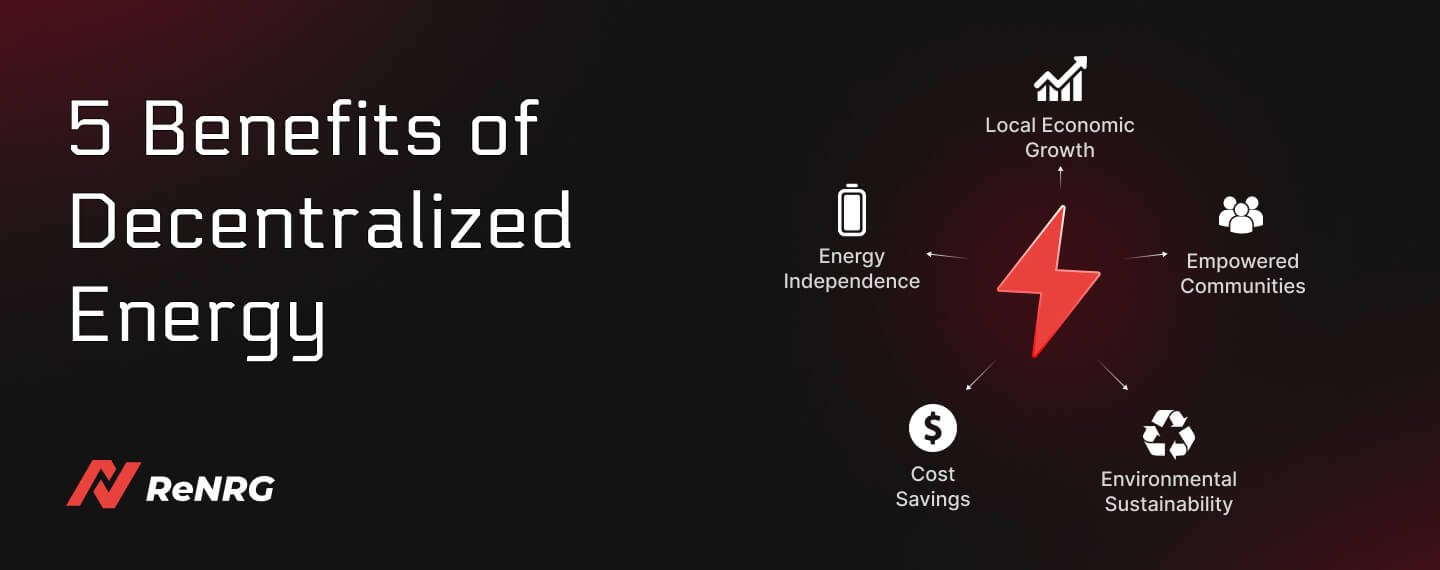Key Takeaways
- Decentralized systems give communities energy control and resilience.
- Reduced infrastructure costs lead to more affordable clean power.
- Local energy projects generate green jobs and economic growth.
- Initiatives like ReNRG’s DePEN foster equity and sustainability.
- Energy Independence: Decentralized energy systems reduce dependence on large utility companies and centralized power grids. Communities can generate their own energy, ensuring a consistent and reliable supply even during grid outages or crises. For example, a rural village implementing solar microgrids can power homes, schools, and businesses without relying on distant power stations.
- Cost Savings: Localized energy production eliminates the need for extensive transmission infrastructure, reducing energy losses and associated costs. With decentralized systems, communities can access renewable energy at lower rates, leading to significant long-term savings. A case in point is Germany’s push for community solar projects, where cooperative ownership has resulted in reduced energy bills for households.
- Local Economic Growth: Decentralized energy initiatives create jobs and stimulate local economies. From installing solar panels to maintaining wind turbines, these projects require skilled labor and foster entrepreneurship. For example, in India, solar microgrid projects have not only electrified remote villages but also created employment opportunities for technicians and entrepreneurs in the region.
- Environmental Sustainability: Decentralized systems prioritize renewable energy sources, drastically reducing greenhouse gas emissions and dependency on fossil fuels. By adopting clean energy solutions, communities contribute to global climate goals while enjoying cleaner air and water. For instance, Denmark’s community wind farms have played a significant role in reducing the country’s carbon footprint while involving citizens in climate action.
- Empowered Communities: Decentralized energy fosters a sense of ownership and empowerment among community members. By participating in energy decision-making processes, communities can tailor solutions to their specific needs, promoting inclusivity and equity. A notable example is the Brooklyn Microgrid project in the United States, where residents trade solar energy directly with their neighbors through blockchain technology, showcasing how decentralized energy can democratize access.
Real-World Impact
FAQs
Decentralized energy refers to energy systems where power is generated and managed locally, often through renewable sources like solar or wind, rather than from a centralized utility grid. These systems can include microgrids, rooftop solar, and battery storage, allowing communities to produce, store, and even trade energy independently.
It reduces electricity costs by minimizing transmission losses and infrastructure needs. It also creates local jobs in installation, maintenance, and system management. Plus, platforms like ReNRG allow communities to earn income through peer-to-peer energy trading.
Yes, decentralized systems often include battery storage and local generation, making them resilient during grid failures or natural disasters. Communities remain powered even when the central grid goes down.
ReNRG’s platform lets users generate renewable energy (e.g., from solar panels) and sell excess energy within the decentralized physical energy network (DePEN). Transactions are secured through blockchain, ensuring transparency and fair compensation.

